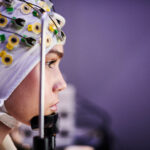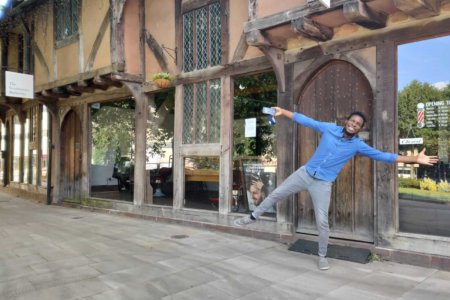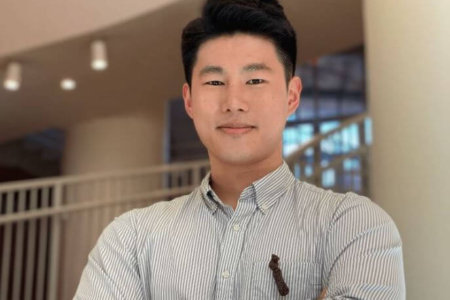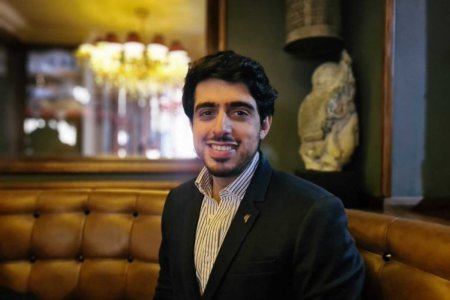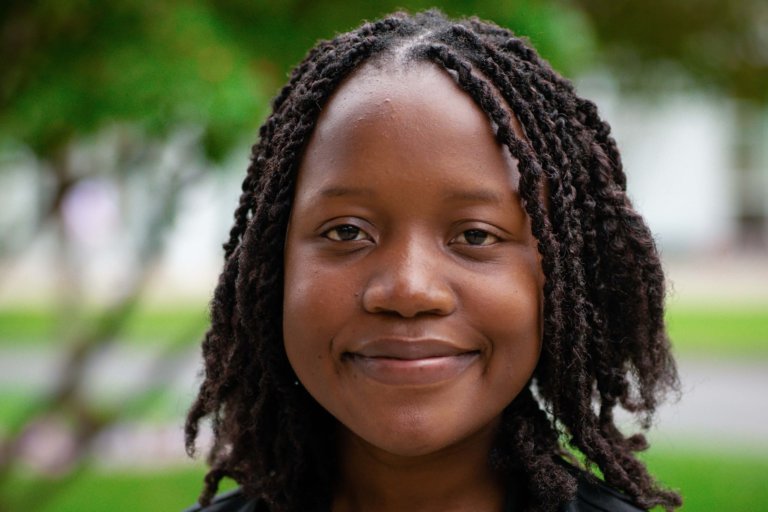
Gladys Saruchera, a biomedical engineer from Zimbabwe, believes in the utmost importance of developing effective, affordable medical devices and therapies to provide the best healthcare, especially in her home country.
After earning her chemical engineering degree at the University of Massachusetts, she worked in the medical devices industry. This was where she realised she wanted to make a greater impact as a biomedical engineer. Her next stop? The University of New Haven.
She’s supported by a fellowship from the American Association of University Women (AAUW). This organisation empowers women and girls in research, education and advocacy.
“I was overwhelmed with joy and gratitude,” she said in an article for New Haven News. She adds that this fellowship will expand her network of inspiring, prominent women she can reach out to.

Her efforts are recognised by the American Association of University Women (AAUW). Source: Gladys Tendi Saruchera
Ultimately, her dream is to make the world a better place. Saruchera is already helpig out with free after-school programmes for high school students in Dzivarasekwa, a low-income neighbourhood in Zimbabwe. Below we talk to this biomedical engineer about her uni experience and how to make healthcare accessible to all:
Where does your interest in STEM come from?
My interest in STEM comes from a place of curiosity. I loved and enjoyed math and science classes from an early age. I’m grateful that my interest was encouraged by my educators throughout my life.
Why choose to pursue this in the US? Tell us a bit more about your educational experience there.
Towards my high school graduation, I was accepted into a college access programme called USAP in Zimbabwe. USAP helps high-achieving, low-income students apply for college and scholarships in the US.
As an undergraduate student, I completed a dual degree in chemistry and chemical engineering through a partnership between Mount Holyoke College and the University of Massachusetts Amherst.
Upon graduation, I worked as a process engineer then as a manufacturing engineer with Medtronic. I then returned to school to complete my master’s in biomedical engineering at the University of New Haven.
I chose the US because of the unlimited opportunities for a practical, well-resourced education I wouldn’t have otherwise been able to access in my home country.
As a biomedical engineer, what are you doing to ensure quality healthcare for low-income communities?
My focus right now is gaining experience in the medical device space. I’m also working on developing high-quality, cost-effective production processes for devices used in electrophysiology.
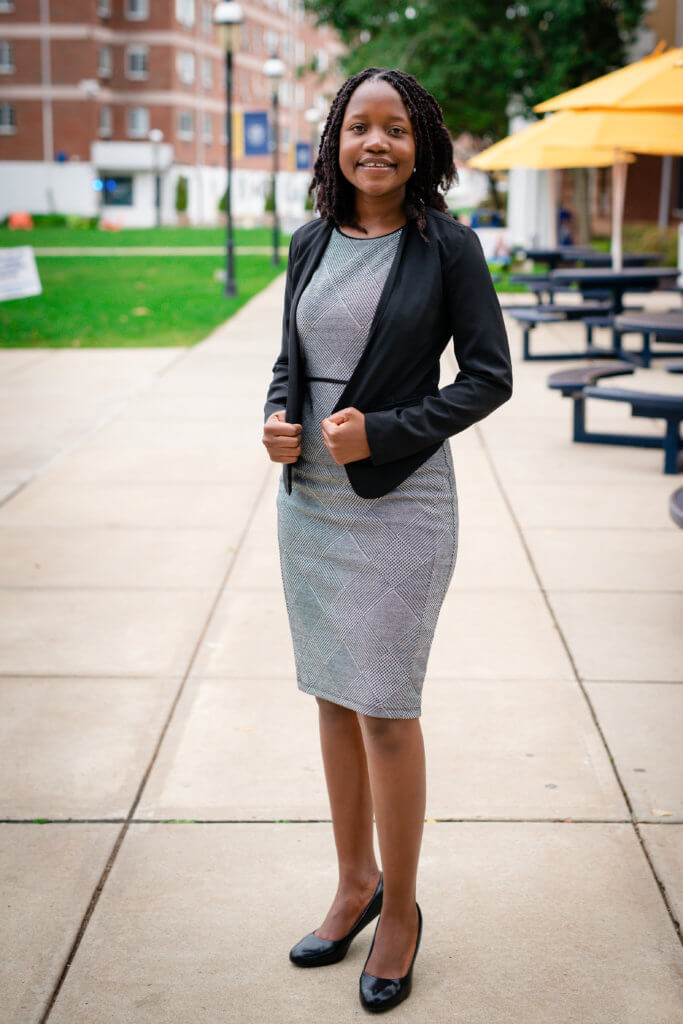
Ultimately, her dream is to make the world a better place and she is doing so with her role at STEM Excel. Source: Gladys Tendi Saruchera
Currently, I’m working in the electrophysiology business unit at Abbott in process development engineering. My main role is focused on working with multiple teams to provide patients with cutting edge devices. This is so there is better diagnosis and treatment of ailments that threaten heart health.
This experience, together with other academic and professional experiences I’ve had so far, is critical in providing the skills to accomplish my dream. I want to build a medical device manufacturing company in Zimbabwe in the future to make quality healthcare accessible for low-income families.
Tell us a bit about your job now.
After my master’s in biomedical engineering, I joined Abbott as a manufacturing process engineer in the process development team within the electrophysiology business unit.
What are the knowledge and skills gained in your course that you use now?
Catheters are, to a great extent, sensor-based so the exposure to biosensors during my graduate programme prepared me for that. Medical device components are derived from various materials that are carefully selected.
They’re chosen based on the desired functionality so courses like “Polymers and Biomaterials” that I took were critical in preparing me for my current role.
What about practical learning elements from your courses?
My degree programme was project-based to an extent. We got to design biological models, and make proposals for new therapeutic treatments among other things.
Critical to these projects was the idea of identifying a gap in the industry and proposing a product to address it. This skill is necessary in my role because the reason why process development engineers are here is to improve existing processes.
This, along with products and supporting the process of bringing new ones to the market. One of my projects focused on the development of an antithrombotic vascular graft to treat peripheral artery disease.
This brought to light critical considerations in medical device design such as biocompatibility, anatomy and so on that I still apply in my day-to-day job scope.
What skills or knowledge do you wish you had learned more during uni?
I wish I took the time to learn more about personal finances. As I transitioned into work, I had to make decisions about important financial components like how much I wanted to invest into my 401K (employer pension scheme in the US), whether or not I wanted an HSA (health related plan), etc.
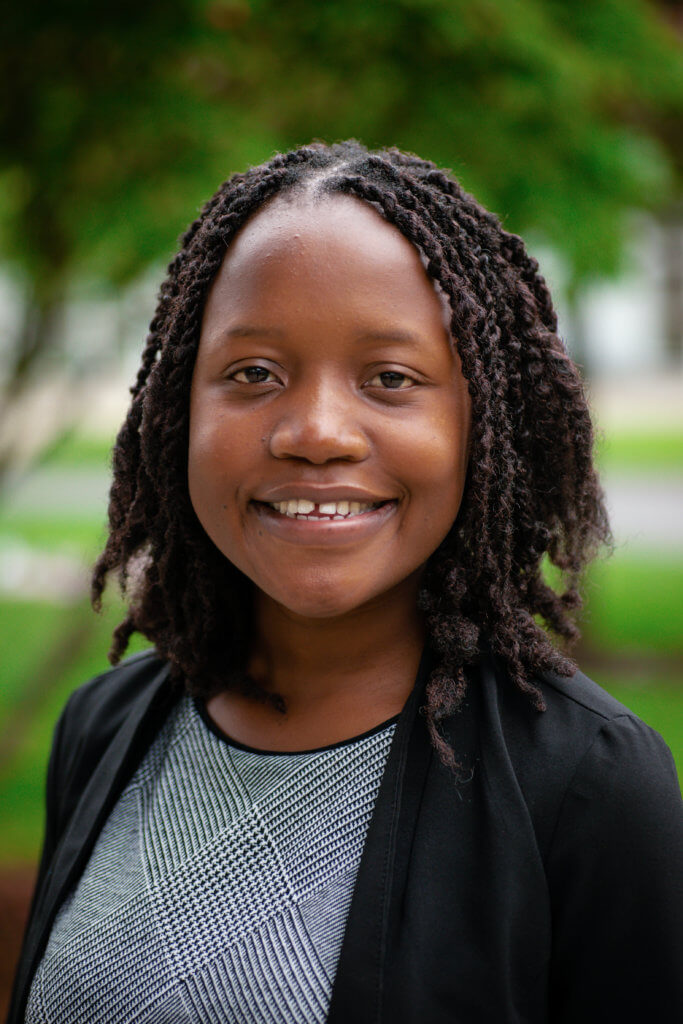
“As an undergraduate student, I completed a dual degree in chemistry and chemical engineering through a partnership between Mount Holyoke College and the University of Massachusetts Amherst,” she says. Source: Gladys Tendi Saruchera
Taking time as a student to learn about these things would have streamlined the process for me as I had no prior exposure to any of these components about adulting before my first job.
Do you have any advice for international students who want to study for the same degrees as yourself?
There are a lot of opportunities in the US educational space so take advantage of them. Don’t be afraid to ask for help when you need it. Most importantly, be proactive, stay on top of your academic obligations and make sure you’re taking classes that support your goals.
More importantly, connect! Connect with alumni and industry professionals early on. It increases your chance of getting internships and these will give you an advantage in job-seeking once you graduate.
Where do you see yourself in 10 years?
In 10 year’s time, I want to be back in Zimbabwe, owning a medical device manufacturing company of my own. I want to apply everything I’m learning so far to finally achieve my dream of accessible cutting edge medical devices in the country.
What’s one thing you miss from home and how do you substitute it?
I miss spending time with my family. It’s not something easily substitutable but I do my best to return for visits and speak with them virtually. The distance is eased by amazing people I’ve met in the US who made it feel like my second home with a great network that are like my second family.







